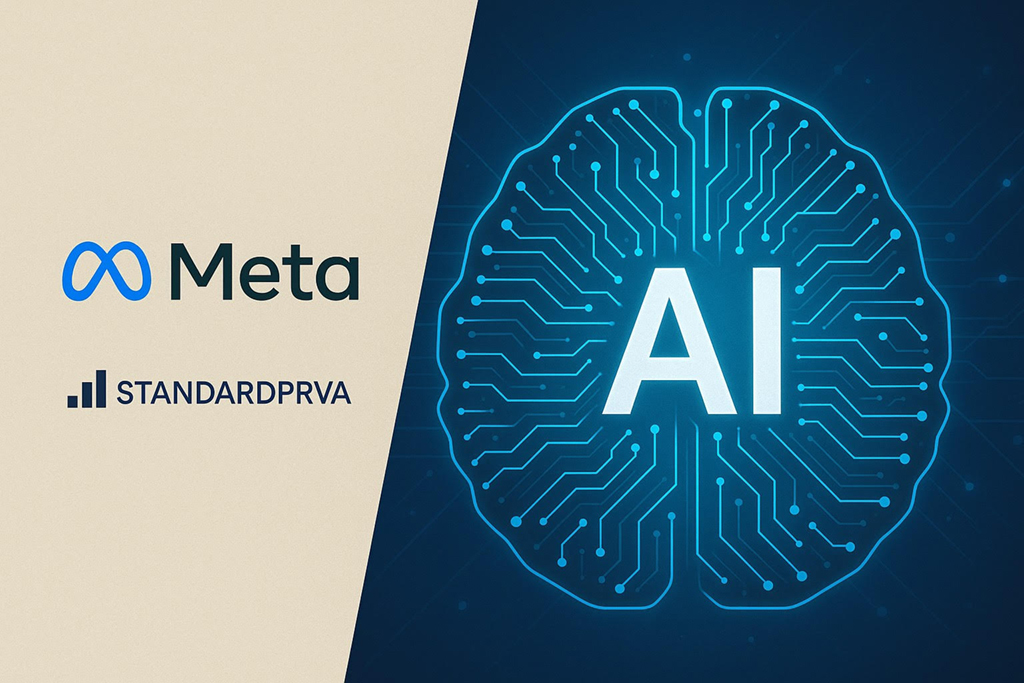Global Race for AI Talent: Meta Faces Brain Drain Despite Huge Bonuses
04.09.2025by: Miloš Stevanović
Mark Zuckerberg, CEO of Meta, during the Meta Connect 2024 conference presents his vision of artificial intelligence development. Meta Platforms – the parent company of Facebook – is investing enormous resources into artificial intelligence (AI) in order to catch up with its competitors. Still, recent events show that even tech giants are not immune to the outflow of top AI experts. Several prominent members of Meta’s AI team have left the company despite generous financial incentives, highlighting the intensity and uncertainty of the global battle for AI talent.
The Global Race for Top AI Experts
In the world’s tech industry, the race for the most qualified artificial intelligence experts is becoming increasingly fierce. Companies such as Meta Platforms, OpenAI, Google (DeepMind), and others are competing to attract the best researchers and engineers, since their primacy in developing advanced AI directly depends on it. Meta, for example, has recently invested billions of dollars into its AI sector and lured experts from rival firms with compensation packages worth hundreds of millions of dollars. Such moves are part of an effort to catch up with or surpass leading AI players like OpenAI, Alphabet’s Google DeepMind division, or rising stars like Anthropic. According to media reports, Meta has even poached experts from competitors like OpenAI, DeepMind, and even Apple, promising them extremely high salaries, bonuses, and stock. The global “talent hunt” in AI has reached a level rarely seen before – some top researchers are receiving offers totaling hundreds of millions of dollars over multi-year periods.
Meta and the Mission of “Personal Superintelligence”
One of Mark Zuckerberg’s most ambitious moves in this race was the formation of a special division – Meta Superintelligence Labs (MSL), with the goal of developing “personal superintelligence” available to every user. This completely new AI team was created in mid-2025 as Meta’s response to the progress of rivals in the field of generative AI and potential artificial general intelligence (AGI). For the needs of MSL, Meta hired dozens of leading AI scientists and engineers from around the world – including well-known experts taken from OpenAI and Google DeepMind – with unprecedentedly high compensations. Zuckerberg’s vision is that through MSL he will accelerate the company’s progress in AI, so that Meta can compete with rivals in what many see as the next great technological revolution.
The seriousness of Meta’s strategy is also demonstrated by its recent purchase of a $14.3 billion stake in Scale AI, thereby securing top capacities for data processing and annotation needed to train AI models. Also, Alexander Wang, the founder of Scale AI, was brought in to lead the new MSL team, while reinforcements were arriving from all directions – from OpenAI, through DeepMind, to research centers in industry and universities. With this offensive, Meta clearly signaled that it does not want to lag in the AI race, and that it is ready to invest enormous capital into infrastructure and manpower to build its own centers of AI power.
Brain Drain Despite High Salaries
Ironically, only a few months after the creation of the MSL division, Meta is facing a significant outflow of staff from that very team. According to media reports, at least eight key employees from the AI sector have left the company during the past several weeks. Among them are longtime Meta veterans – engineers who built the core AI infrastructure (e.g. helped develop the PyTorch platform) – as well as several newly hired experts whom Zuckerberg personally attracted to MSL with big promises. Some of the departing experts are moving to direct rivals – for example, Meta lost its director of generative AI products, who after nearly nine years at the company joined OpenAI. Others are finding opportunities in smaller innovative firms: one Meta researcher joined a new AI startup dedicated to advanced materials shortly after leaving, while a longtime engineer joined Anthropic, run by a former OpenAI team. Particularly notable is the case of two researchers who, after less than a month at Meta, decided to return to their previous company, OpenAI.
The speed of these experts’ decisions to leave Meta is surprising, given the generous financial conditions they had. One of them – a prominent researcher who came to Meta from Google DeepMind – said he made a “difficult decision” to leave MSL after just five months, citing Mark Zuckerberg’s own advice that “in a rapidly changing world the greatest risk is not taking any risk.” In other words, he decided to look for a new opportunity, considering that the greater risk was staying in the current environment rather than making a change. Such a move suggests that the motives of these experts are not purely financial – challenges, vision, or values can play just as important a role as salary.
Internal Tensions Within the Company
Sources close to Meta indicate that these departures are a symptom of deeper tensions within the company, stemming from its very strategy of aggressive hiring. Many existing Meta employees felt uneasy when new recruits were brought in with compensation packages rarely seen in the industry. The arrival of lavishly paid newcomers provoked resentment, and even threats of departure among some Meta AI veterans. These experienced engineers, who had built the company for years with much more modest rewards, suddenly found themselves next to “stars” brought in under conditions resembling those in professional sports. Such a situation undermined morale and sparked a wave of loyalty questioning within the AI division.
At the same time, Meta’s internal organizational chaos further intensified the sense of insecurity. In an attempt to accelerate AI development, the company reorganized its AI teams several times during 2023 and 2024, leading to frequent changes in structure and leadership. “Many in the AI team may feel that things are too dynamic,” one engineer described the atmosphere after leaving Meta, pointing out that there had been “many organizational changes – even my managers changed several times.” In such circumstances, some employees gained the impression that goals and directions were constantly shifting, making stable work on long-term projects difficult.
As expected, Meta tried to downplay the significance of these events. A company spokesperson said that a certain level of staff fluctuation is “normal for any organization of this size,” emphasizing that most of those leaving are longtime employees to whom Meta wishes all the best in their future work. The company admits that in recent months it has led an intense hiring campaign, during which, as they say, it is expected that some candidates will change their minds and decide to stay with their previous companies instead of joining Meta. In other words, Meta insists that such attrition is not an alarming signal, but a common occurrence in times of expansion and transformation of its AI team. Still, unofficial information and testimonies of former employees suggest that the company’s internal challenges are real – from the cultural clash of old and new teams, to questions of fairness in compensation, to the clear definition of research directions after numerous course changes.
Global AI Power Centers and Talent Migration
The latest developments around Meta reflect a broader picture of the global AI industry. StandardPrva closely monitors two key trends that come to the fore in this story: (1) the development of global centers of power in artificial intelligence, and (2) the migration and behavior of experts in the AI industry. Meta, OpenAI, Google DeepMind, Microsoft, as well as a number of Chinese tech giants, are competing to become leading centers of AI innovation – attracting top talent and concentrating computing resources. In this process, top experts are increasingly switching employers or founding their own projects, seeking environments where they can best realize their ideas. Meta’s example shows that money alone is no longer enough: in a market where senior AI researchers can choose, many prioritize vision, values, and working conditions within a company. According to one engineer who declined Meta’s offer, the company’s demand that significant “personal sacrifices” be made in exchange for a high salary – such as giving up work-life balance or compromising on personal beliefs about AI development – turned away some candidates despite the tempting figures.
For managers, investors, and technology leaders, these trends carry an important lesson. The global contest for AI talent is not fought only through salaries, but also through creating environments that foster creativity, stability, and ethical development. Companies that aspire to be centers of AI power must also focus on retaining staff – through clear strategy, organizational stability, and aligning goals with the values of experts. The departure of experts from Meta despite extraordinary benefits is a reminder that, in the rapidly developing AI industry, the greatest resource is people – and their loyalty cannot be bought solely with money. Ultimately, the winners in the AI race will be those players who manage to gain and keep the trust of top talent, while simultaneously pushing the boundaries of technological progress.
/ / /
"Standard Prva" LLC Bijeljina is a company registered in Bijeljina at the District Commercial Court in Bijeljina. Company’s activities are accountancy, repurchases of receivables, angel investing and other related services. Distressed debt is a part of the Group within which the company repurchases the receivables, which function and are not returned regularly.
Lawyer’s Office Stevanović is the leading lawyer’s office in the region with the seat in Bijeljina. The LO abbreviation represents Lawyer’s Office of Vesna Stevanović and Lawyer’s Office of Miloš Stevanović.
Contact for media press@advokati-stevanovic.com or via telephone 00 387 55 230 000 or 00387 55 22 4444.




